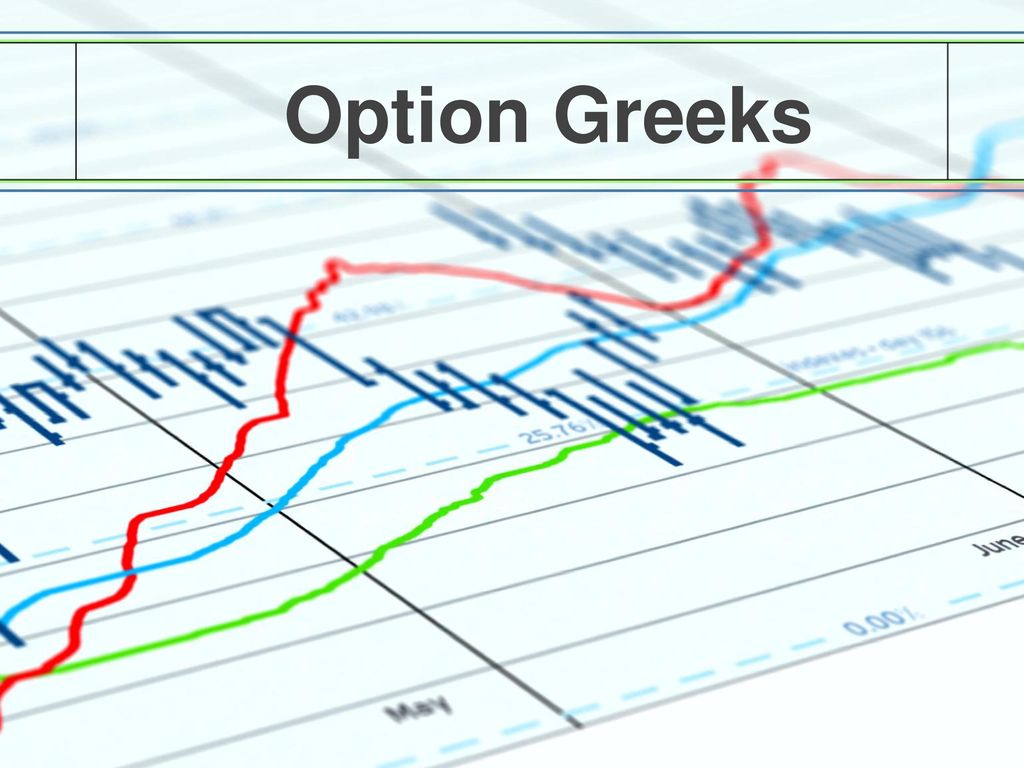Supply and demand cause constant price fluctuations in options. Even if the price of a share does not change, the value of the corresponding options can still rise or fall. For less experienced option traders this may initially be somewhat irritating. An explanation may be provided by the so-called Greeks. These are key figures/sensitivities for pricing options. They are named after Greek letters and take into account changes in the price of the underlying asset, the passage of time and the increase or decrease in implied volatility. In this chapter we explain the four most important Greek letters. These are very important for understanding how options work.
Delta
Among the Greeks, delta is the most important and best known indicator. Delta is used to:
indicate the price change of an option in relation to a price change of the underlying assetcalculate the delta position, that is, the number of shares represented by an option position
The price change of an option in relation to a price change of the underlying assetThe first use is generally the most common. The delta refers to the change in value of the option in relation to the price movement of the underlying asset. When the price of the underlying asset changes, the standard assumption is that the price will rise or fall by one monetary unit (for example, $1). An investor speculating on a rise in the price of a stock could also buy a call option instead of a stock. If the share then rises by $1, the call option purchased usually also gains in value. However, in most cases the option price does not increase by exactly $1, but by a different amount. The delta indicates how much the increase in relation to the stock actually is, assuming that all other factors remain unchanged.
The delta of an option is given as a decimal number and can only take values between 0 and 1. If an option has a delta of 0.60, then the change in value of the stock by €1 by €0.60 affects the option price. Since call options have a positive correlation to the price of the underlying asset (if the price of the underlying asset increases, the value of the call option also increases), the delta of call options is positive. The opposite is true for put options. Since put options have a negative correlation with the price of the underlying asset (if the price of the underlying asset increases, the value of the put option decreases), put options have a negative delta.

The delta position = number of shares, which is represented by an option positionThe delta position specifies the number of stocks represented by an option position. For example, an option investor who holds 10 call options of Deutsche Post (contract size 100) with a delta of 0.60 indirectly has a position of 600 (= 10 options x 100 shares x 0.60) shares of Deutsche Post.
The delta position is therefore “600 deltas long”. For example, if this investor has also bought 5 put options Deutsche Post with a delta of -0.40, his total position of 15 options is “400 deltas long”. This is made up of the 600 deltas of call options and -200 (= 5 options x 100 shares x -0.40) deltas of put options.
Gamma
If the price of the underlying asset of an option changes, an option moves either deeper into the money or further out of the money. As a result, the delta also changes. The rate of change of the delta is measured with the Greek gamma.
The gamma indicates the change in the delta when the price of the underlying asset changes by one unit. Gamma is greatest for options at the money, since price changes of the underlying asset have the greatest influence on the delta at this point. Gamma = change in delta when the price of the underlying asset changes by one unit
The function of gamma
For an option investor, gamma is important for the following reason: For a purchased option, the profit increases if the price movement of the underlying asset matches the purchased position. If you own a call option and the price of the underlying asset increases, the delta increases with each additional point. The increase in the delta ensures that the price of the call option increases more sharply when calculated in monetary units. The profit of the option investor therefore increases the more the price of the underlying asset moves in the right direction.
Conversely, the loss decreases accordingly. The purchased call option will lose most of its value when the underlying asset falls with the first point. Due to the gamma, the delta becomes smaller the further the underlying asset falls into the loss range. For this reason, the amount of the losses per additional point of decline in the DAX index is always smaller.
This loss-limiting principle naturally appeals to investors. If you are wrong, the losses will always be smaller in terms of amount, while the profit will be larger if the market is correctly assessed in monetary units.
In reality, however, there are other factors that play a role in the pricing of options. For example, the gamma is contrasted with the Greek theta, which takes into account the passage of time.
Vega
Since the prices for options are also based on the expected price fluctuations of the underlying asset, volatility plays an important role. For the interpretation of Vega it is important to know that volatility represents the expected range of fluctuation of the underlying asset until the expiration date.
The vega of an option indicates how much the price of an option changes when the volatility changes. A decrease in volatility means, for example, that there are fewer price movements of the underlying asset, so that options on that asset become cheaper.
If volatility increases, the expected fluctuation margin of the underlying asset increases and the options become more expensive. The vega is also based on the strike price and the term of an option. An option with a short life is less sensitive to changes in volatility than an option with a long life. By default, the vega is expressed as a decimal number, which refers to the change in the implied volatility (the expected volatility) of an option by one point.
Theta
The last important option greek that plays a significant role for the option investor is the theta. The theta refers to the time value of options. Bought options give the option investor the right to buy or sell stocks or other securities on or up to the expiration date of the option. For example, if an out-of-the-money call option is purchased, the premium paid consists solely of the time value. The intrinsic value is always zero for out-of-money options. If the option has no intrinsic value on the expiration date, it is not exercised and the option expires worthless. From the moment of purchase, the time value of the option expires. At the beginning, this process is relatively slow, but becomes faster and faster towards the expiration date. The theta indicates the extent to which the price of the option decreases when the remaining term of the option decreases by one day.
The time value of an option
Theta indicates how much an option loses per day. The shorter the term of the option, the faster an option loses time. For two options with the same strike price but different expiration dates, the daily losses in value are greater for shorter-running options than for longer-running options. Approximately one month before expiration, the time value of the option decreases exponentially. For an option, on the other hand, which still has a term of twelve months, for example, the daily loss in time value is very limited.
The amount of theta is based on the exercise price of the options with the same term. Options with a higher implied volatility have a higher theta.
Since the timedecay is a continuous process, the theta reduces the value of an option over the course of a day. However, most of the daily time value loss occurs between the closing and opening of the markets the following day. Since the introduction of weekly options on the DAX, this phenomenon can be observed every day. These derivatives, which are particularly popular with private investors, show extremely high losses in fair value due to the very limited term of the options.
Check out EToro for comission free trading!
For more interesting investment ideas, check out the Capitalist Partners Newsletter

